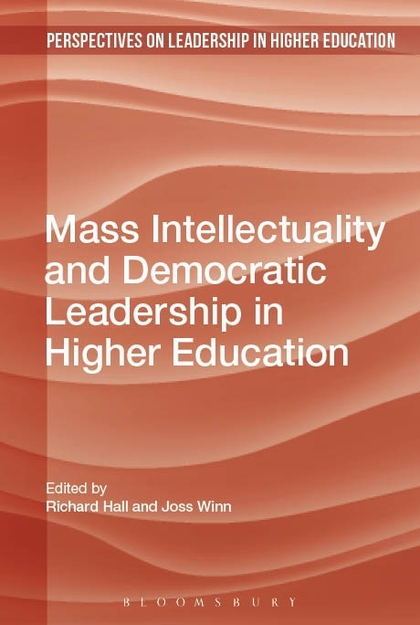In some earlier notes, I asked whether the worker co-operative form is suitable for a university in light of how the international co-operative movement defines the ‘character’ of worker co-operatives and the re-conceptualisation of academic labour that this organisational form would imply. I asserted that the university is already a means of production which capital employs together with academic labour to re-produce labour in the form of students, and value in the commodity form of knowledge. A worker owned co-operative university would therefore control the means of knowledge production and potentially produce a new form of knowledge.
I also summarised the values and principles of the co-operative movement as a whole, noting that they are (for most individuals) aligned with academic values and principles. I highlighted the emphasis among worker co-operatives on ‘common ownership’ as a form of property relations which overcomes the distinction between ‘public’ and ‘private’ to produce an ‘academic commons’. I pointed to the ways in which such a worker co-operative university might be governed, the integration of co-operative values and principles into the curriculum and other organisational practices (cf. Facer (2011[/note] and outlined three ‘routes to co-operation’: conversion, dissolution, creation. Finally, I suggested that the distinction between teacher and student would necessarily be dissolved and with it the division of labour, too. Assuming this was the case, a radically different method of curriculum development and pedagogy would be required. Drawing on Kasmir’s reflections on Mondragon, the Spanish worker co-op, that we should “be skeptical of models that make business forms rather than people the agents of social change”, it follows that the organisational form of a ‘co-operative university’ should itself be derived from the pedagogical relationship between teacher-student-scholar-members i.e. ‘scholars’. I suggested that the basis of this pedagogical relationship might be work I have been involved in referred to as ‘Student as Producer’.
Student as Producer
“The idea of student as producer encourages the development of collaborative relations between student and academic for the production of knowledge. However, if this idea is to connect to the project of refashioning in fundamental ways the nature of the university, then further attention needs to be paid to the framework by which the student as producer contributes towards mass intellectuality. This requires academics and students to do more than simply redesign their curricula, but go further and redesign the organizing principle, (i.e. private property and wage labour), through which academic knowledge is currently being produced.” (Neary & Winn, 2009, 137)
In these notes I want to review the work of my colleague, Mike Neary, who conceived and developed ‘Student as Producer’ and has subsequently led a project to implement research-based teaching and learning across our entire institution. Here, I want to focus on the theoretical development of Student as Producer and consider its suitability and utility as the pedagogical basis on which a worker co-operative for higher education might be developed. In order to do this, I work my way chronologically through several substantive pieces of writing about Student as Producer.
In each reading, I try to glean specific features of Student as Producer as it has developed, which seem relevant to my overarching question: ‘Is the worker co-operative form suitable for a university?’ I do not attempt to fully answer the question in this series of posts, but rather identify points, issues, questions and considerations for further exploration.
Linked to this blog post are seven subsequent sets of notes, covering seven of Neary’s articles and one keynote transcript. Click on the article title to go to each set of notes. It amounts to around 15,000 words and so it may be preferable to read it in PDF format. If you wish to cite them, please treat them as “preliminary notes”. Thank you.
1a. Neary, Mike (2008) Student as producer – risk, responsibility and rich learning environments in higher education. Articles from the Learning and Teaching Conference 2008. Eds: Joyce Barlow, Gail Louw, Mark Price. University of Brighton Press. Centre for Learning and Teaching
1b. Neary, Mike and Winn, Joss (2009) The student as producer: reinventing the student experience in higher education. In: The future of higher education: policy, pedagogy and the student experience. Eds. Bell, Neary, Stevenson. Continuum, London, pp. 192-210.
2. Neary, Mike and Hagyard, Andy (2010) Pedagogy of Excess: An Alternative Political Economy of Student Life. In: The Marketisation of Higher Education and the Student as Consumer. Eds. Molesworth, Scullion and Nixon. Routledge, Abingdon, pp. 209-224.
3. Neary, Mike (2010) Student as Producer: a pedagogy for the avant-garde; or, how do revolutionary teachers teach? Learning Exchange, Vol. 1, No. 1.
4. Neary, Michael (2012) Teaching politically: policy, pedagogy and the new European university. Journal for Critical Education Policy Studies, 10 (2). pp. 233-257.
5. Neary, Michael (2012) Student as producer: an institution of the common? [or how to recover communist/revolutionary science]. Enhancing Learning in the Social Sciences.
6. Neary, Mike and Amsler, Sarah (2012) Occupy: a new pedagogy of space and time? Journal for Critical Education Policy Studies, 10 (2)
7. Neary, Mike (2013) Student as Producer: a pedagogy for the avant-garde; or, how to revolutionary teachers teach? [v2] Paper presented at Walter Benjamin, Pedagogy and the Politics of Youth conference, London. [unpublished]
 Due out in August 2017…
Due out in August 2017…